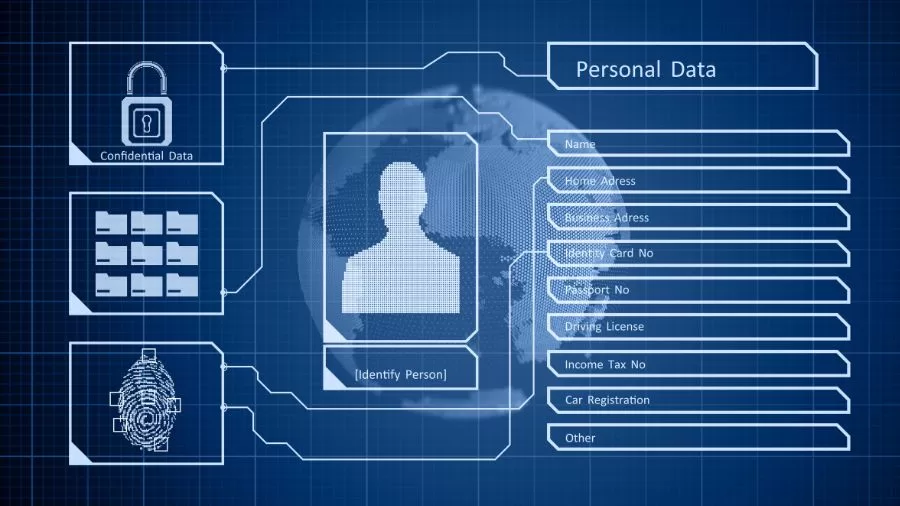Building Consumer Trust in the Digital Age: The Role of Identity Protection Services

In the ever-evolving digital age, trust has become the cornerstone of successful relationships between brands and consumers. With data breaches and identity theft on the rise, consumers are becoming increasingly cautious about how their personal information is handled. At the same time, they demand transparency and ethical practices from the brands they interact with.
This shift in consumer expectations underscores the need for businesses to focus on two key aspects: safeguarding personal data and ensuring responsible access to public information. By addressing these areas, brands can build stronger, lasting connections with their audience.
The Rising Need for Identity Protection
As technology advances, so do the risks associated with it. Data breaches, identity theft, and cyberattacks have created a world where consumers constantly worry about their personal information falling into the wrong hands. For businesses, this presents both a challenge and an opportunity.
Why Data Security Matters
Today, consumers are more aware of the importance of data security than ever before. A single breach can not only compromise sensitive information but also tarnish a brand’s reputation irreparably. Studies show that 80% of consumers would stop engaging with a brand after a data breach.
To address this, businesses must invest in robust security solutions. These solutions should include monitoring tools that detect unauthorized access to sensitive information and mechanisms to alert users of potential threats. By taking proactive measures to secure data, brands can demonstrate their commitment to protecting their customers.
Tools That Empower Both Consumers and Businesses
Modern technology offers solutions that benefit both consumers and brands. For consumers, identity monitoring services can track personal information across databases, the dark web, and other vulnerable areas. These services provide real-time alerts if sensitive data is exposed, allowing users to take immediate action.
For businesses, integrating such tools into their systems not only protects their customers but also enhances their reputation as a brand that prioritizes security. This approach builds a foundation of trust that fosters long-term loyalty.
Transparency: The Other Half of the Trust Equation
While data protection is essential, it’s only half the battle. Transparency in how businesses handle and access information is equally critical. Consumers expect brands to act ethically, particularly when it comes to accessing and using public data.
The Importance of Ethical Data Access
Responsible data access involves obtaining information in a manner that respects privacy and complies with legal standards. Whether it’s conducting background checks, verifying identities, or ensuring compliance, businesses must adopt practices that align with ethical guidelines.
Failing to do so can lead to mistrust and potential legal repercussions. Transparent practices reassure consumers that their data is handled with integrity, further strengthening the relationship between the brand and its audience.
Enabling Responsible Data Use
To ensure transparency, businesses can leverage tools designed for responsible data access. These platforms allow organizations to gather public information—such as background details, criminal records, or property ownership—without violating privacy regulations. By integrating such tools, companies can maintain compliance while promoting trust and accountability.
Combining Security and Transparency for Maximum Trust
Focusing on either security or transparency alone isn’t enough in today’s digital age. Brands must strike a balance between protecting data and providing clarity about how it’s accessed and used.
How Brands Can Leverage Both
By combining advanced identity protection services with tools for ethical data access, businesses can address consumer concerns holistically. For instance, while one solution might monitor for breaches and alert users to vulnerabilities, another could ensure that all data-gathering processes are conducted transparently and responsibly.
This dual approach not only protects consumers but also positions the brand as a leader in ethical and secure business practices. Companies that adopt these methods often find their customer loyalty and engagement levels increasing significantly.
The Benefits for Businesses and Consumers
The advantages of prioritizing both security and transparency are numerous:
- For businesses: Enhanced reputation, compliance with regulations, and increased customer loyalty.
- For consumers: Peace of mind, greater trust in the brand, and a safer online experience.
Brands that invest in these areas position themselves as trustworthy partners in their customers’ digital lives.
In the digital era, consumer trust is no longer optional—it’s essential. Businesses that fail to address the growing concerns around data security and transparency risk losing their audience to competitors who do. By adopting robust identity protection measures and committing to ethical data practices, brands can secure their future while delivering unparalleled value to their customers.
Building trust takes time, but with the right tools and practices in place, businesses can navigate the complexities of the digital age and thrive. Now is the time to prioritize security and transparency and become a brand that consumers can truly rely on.















